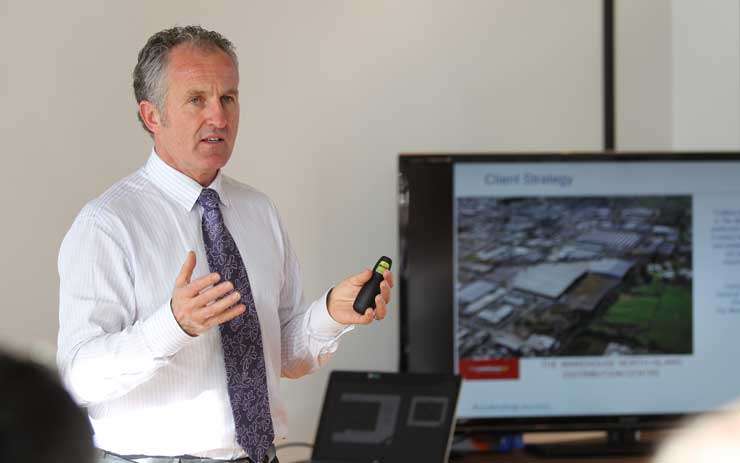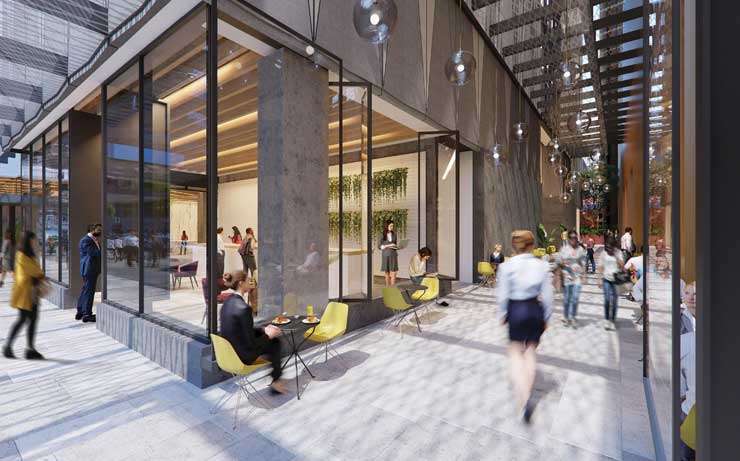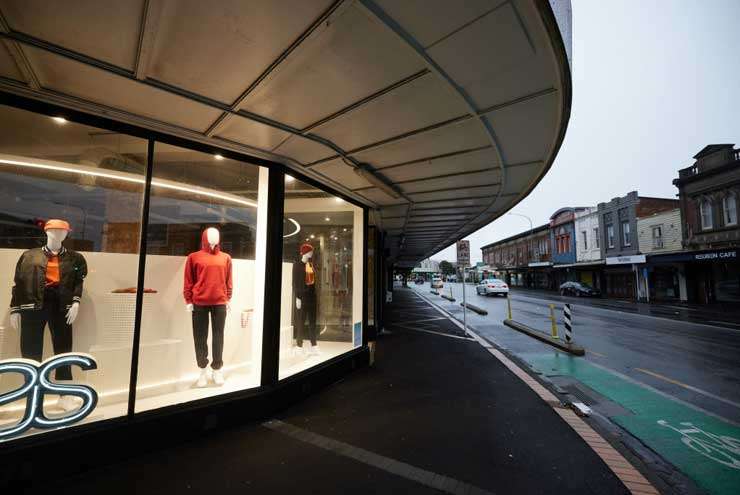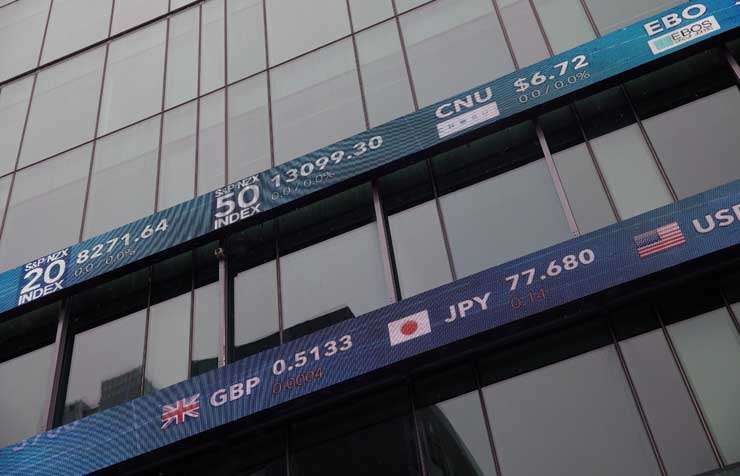With Covid-related impacts not denting the commercial sector this year as much as might have been expected, OneRoof asked commercial leaders for their predictions for the year ahead.
Mark Synnott, CEO of Colliers New Zealand
"The low interest rate, high employment, low supply, and pent-up demand environment that catapulted New Zealand’s commercial and industrial sectors into a record year in 2021 will help to sustain high levels of transactional activity in the early stages of 2022," says Synnott.
"The rural and lifestyle sectors’ strong finish to 2021 also provides many positive signals for a buoyant start in 2022 for the primary sector.
Start your property search
"And while more sustainable value growth rates for the residential sector are picked for 2022, new apartment and townhouse construction activity, especially in the main urban centres, will drive the sector’s expansion."
Synnott says vacancy rates in the industrial sector will likely remain extremely low in 2022 adding pressure to a sector that is starved of quality stock due to a boost in tenant demand in the warehousing and logistics, storage, and construction sectors.
"Rising interest rates may temper the record price setting achieved in the industrial sector lately, but pent-up demand, a wall of cash, and a lack of opportunities to pursue will keep fuelling the sector."
Synnott says demand for high-quality office buildings will grow in 2022. "High vaccination rates throughout New Zealand, particularly in our busy urban centres, means we should see a return to the office environment for many workers who have spent much of the past two years in and out of the office," he says.

Colliers NZ CEO Mark Synnott says rising interest rates may temper the market. Photo / NZ Herald
"The ‘Great Resignation’, a term based on the theory that many workers will reassess their options due to the Covid-19 pandemic, will play an important part in staff retention strategies next year as businesses continue to fight for the best people in a highly employable market.
"Many firms will introduce hybrid working models but focus on incentivising staff back to the office with the latest in workspace design and sustainability so that people can perform to the best of their abilities."
Ryan Johnson, Bayleys national director commercial and industrial
Johnson says the unrelenting demand for service, experience and amenity will reshape office markets in New Zealand.
“While the office remains central to the workplace experience, the so-called SEA change – Service, Experience and Amenity – will be firmly in focus for businesses,” he says.
Tenants will be looking to upgrade their offices. Premium spaces will be in high demand, “with generic space less likely to be perceived as the compelling office of the future”.
“Lower quality secondary assets will need to be upgraded or risk accelerated obsolescence.”
Another factor that will influence the market in 2022 is “the green premium”, which Johnson says will become more evident as investors adopt net zero portfolio targets.

An artist's impression of $650 million office block on Auckland's Albert Street. The development has a 6 Green Star rating. Photo / Supplied
“Office investment sales over the past decade reveals that office buildings with a NABERS Energy rating of up to 4.5 stars benefit from an 8 per cent premium on sales price compared to unrated buildings, while those with very high ratings of 5, 5.5 or 6 stars enjoy an 18 per cent premium.
“The importance of energy efficiency and its impact on building values (all sectors) can only be expected to increase as more and more tenants and investors adopt specific environmental targets for their own real estate activities.”
Johnson says a focus on supply chain resilience will continue to drive industrial demand.
“Demand for modern stock is well and truly outpacing supply and this will see the market remain tight with vacancy levels to remain sub 2 per cent.”
Investors exploring build-to-rent and other specialist sectors through build‑to-core strategies, is another area to look out for.
“Investors are continuing to investigate investment allocations towards operational real estate sectors such as medical facilities, build-to-rent, seniors housing, data centres and student accommodation.

The industrial property sector has managed to ride high during the Covid crisis. Photo / Getty Images
“The share of these alternative sectors has accelerated markedly since the onset on the pandemic, representing 35 per cent of investment volume globally in 2021, up by nine percentage points compared to the average over the five years to 2019.”
Todd Lauchlan, managing director of JLL
“I think you will see probably a spike in immigration and also emigration but because our employment market is so tight I think there will be a lot of companies looking to bring people into the country for new jobs,” says Lauchlan.
“Construction project management and all those sectors are screaming out for talent, so I think that will mean there is a lot of economic activity that is going to involve probably immigration again.”
There are plenty of positives for the year ahead.
“I think as long as the farming sector and the dairying sector continue to perform well I think that always underpins a strong economy.”
There is a rising interest rate environment, however, and yields might have peaked so it’s unlikely there will be a continuation of the yield compression already seen.
“In some cases there might be people that will look to sell because they feel the prices have reached a pretty good high after a lot of growth, and there will be others that are comfortable coming in to benefit from I guess some of the inflation you get from owning real estate.”

A closed store on a deserted street in Auckland during the city's extended lockdown. Photo / Getty Images
There are always challenges and some of the CBD retail market will likely take a while to recover.
“But broadly speaking I feel pretty confident that the market is still very active. I think New Zealand remains a great place to live and work and invest in.
“I think probably the return of the overseas students also gives us another positive in that they have been out of the economy for a while.
“There will be a number of things that can drive the economy forward so, as I guess we always are in our business, reasonably optimistic, it has been very resilient through a very tough time.”
Andrew Stringer, Senior Managing Director for CBRE New Zealand
This year has confirmed a number of trends which could now be considered structural changes, says Stringer.
“Local investors will continue the trend of the second half of 2021 by dominating market activity, in the first half of next year, with a bounce back in off-shore deals in H2.
“The locals are, however, impacted by increasing interest rates and we’ve already noticed some buyers seeking out higher yielding assets factoring in the higher borrowing costs.
“We have seen private investors drift into very high value purchases, with $100 million shopping centres completely within the target range, and we expect this to continue.
“For example, CBRE brokered the sale of The Palms in Christchurch for $88.8 million, sold by AMP Capital to the DiMauro Group.”

Electronic tickers display stock figures and international currency rates in Auckland. New Zealand's economy was expanding at more than twice the pace forecast before last year's nationwide lockdown. Photo / Getty Images
Stringer says international investors will continue to be attracted to the New Zealand market because despite the challenges of the last 24 months the quality of assets, the country’s underlying economic health and the relative ease of doing business in New Zealand remain positive factors.
And occupiers will continue to look for ways to improve occupancy arrangements, in particular around the quality and flexibility of their space, across all sectors.
“All markets are so dynamic that the flexibility to provide space to expand or contract will be a key ingredient in securing high quality occupiers.”













